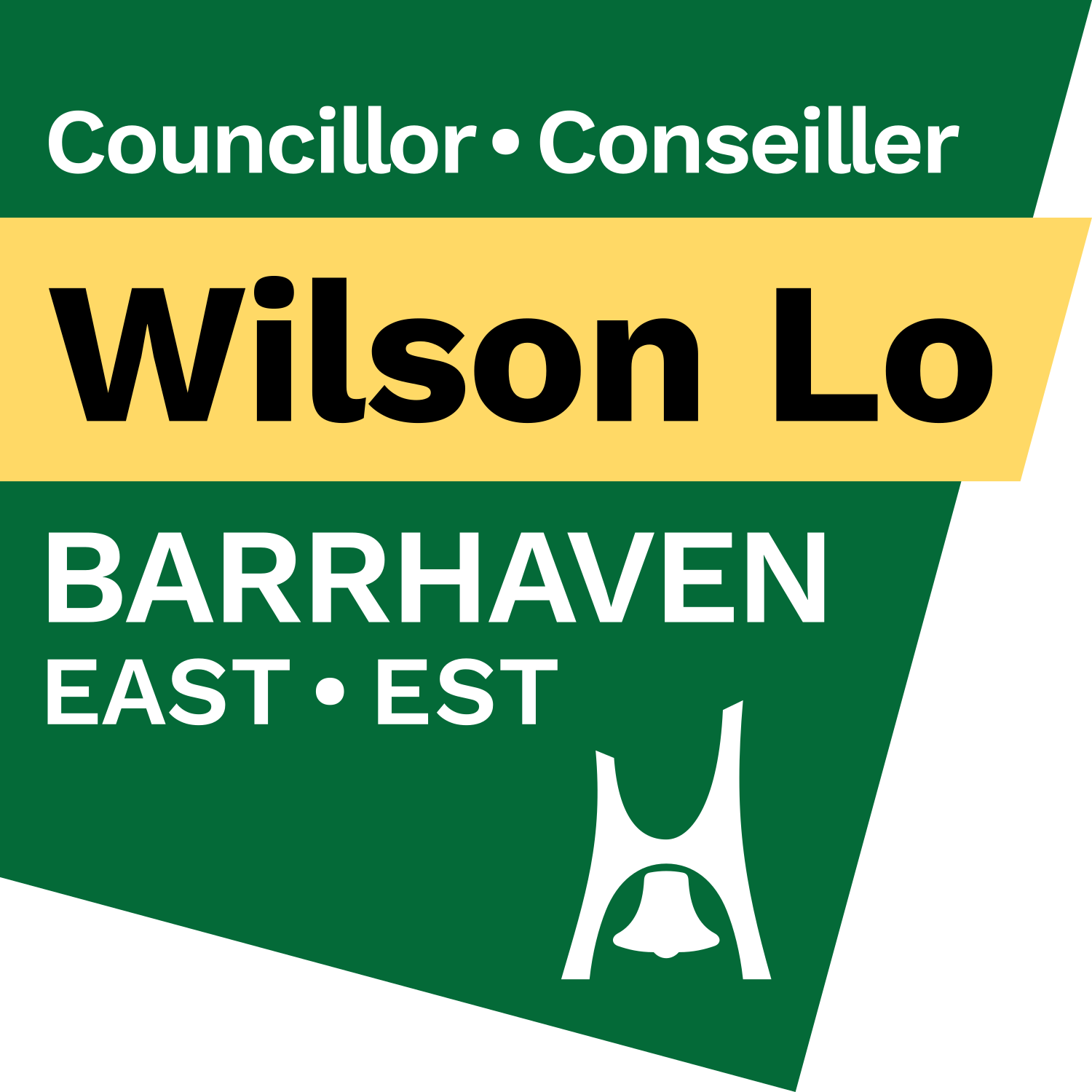Weekly newsletter: January 30, 2024
Well, it’s going to be February this week.
I went to an unnamed membership-only warehouse store yesterday to purchase one item my wife and I needed for this week’s meal prep. Apparently, it’s weird to leave that store with just one item (chicken strips nonetheless), based on the (good natured) comments I got from the cashier and the couple behind me in line.
Developer contribution – background
The first full Council meeting of 2024 included a discussion which turned lively.
Back in November 2023, Katasa Group, a Gatineau-based residential and commercial rental property developer and manager, sought approval for a zoning by-law amendment to construct two buildings at the southwest corner of Carling and Bronson.
The company proposed construction of two buildings, nine storeys for one and 22 storeys for the other, totalling 278 residential rental units.
Rezoning applications are not applications to build, but developers often include a preliminary plan of what they hope to build should rezoning be approved by planning committee and Council. There are cases where rezoning is approved, but the project does not go ahead.
The rezoning application was approved by Planning Committee on November 15, 2023.
At the end of that same meeting, Councillor Menard introduced a notice of motion to be discussed at the next Planning Committee meeting on January 17, 2024.
The motion, if approvedat the next meeting, directs staff to sign a memorandum of understanding with the developer to accept their voluntary contribution of $300,000-$100,000 for traffic calming measures and $200,000 for affordable housing, all to be used locally in Capital Ward.
Section 37, Planning Act
Previously, the Provincial Planning Act, that governs municipal planning, included wording in Section 37 which permits municipalities to negotiate contributions towards community benefits for developments that seek to increase a site's permitted density.
The section of the Act allowed municipalities to request such benefits when the development increases a site’s density by 25 per cent or more. Unique to Section 37 is the benefits may be directed to the community where the development is located.
With the passage of Bill 23 in October 2022, Section 37 was significantly modified.
Basically, Section 37 was a density bonus no longer enshrined in provincial law. Instead, individual municipalities now have the authority to pass local Community Benefits Charge (CBC) by-laws to achieve similar results. Most notably, that authority comes with a cap of four per cent of the property’s value.
Municipalities across Ontario have until October 2024 to create and pass local CBC by-laws.
The current policy
There is none.
Contributions of this sort was covered by Section 37 in the past, though I am aware previous Councils have accepted smaller voluntary contributions ad-hoc in the past.
An early CBC by-law was drafted by the City shortly before Bill 23, but a more fulsome by-law is presently being drafted by City staff for discussion and vote by Council some time this year.
However, it’s likely ad-hoc contributions will still be proposed, so I did support the creation of a formal policy to cover these sorts of voluntary contributions. To note, a policy can also include a policy to outright reject all voluntary contributions and direct them to the CBC by-law process instead.
The Council discussion and vote
As mentioned earlier, the discussion became lively, at times a clash of personalities with differing views on the voluntary contribution.
One Councillor amounted it to extorting a developer in exchange for a rezoning approval, while another backed up the contribution as a developer’s goodwill where they hope to be building.
Regardless of Katasa’s history and how the agreement was reached, my worry is accepting contributions like these opens the door to a two-tiered planning system favouring developers with deeper pockets.
While current planning staff and Councillors may be good and fair with managing and separating contributions from the planning process, there’s nothing stopping someone in the future from corrupting the process (and themselves).
That’s why I voted against accepting the contribution and why I voted in favour of the creation of a formal policy about these contributions. I’m hoping the policy that is ultimately approved will deny future voluntary contributions and redirect developers to the future CBC by-law process instead.
Contributions in the interim until the policy is approved will be treated as citywide contributions to be distributed by staff rather than the local Councillor (staff may also see needs to be hyper-local and dedicate the funds to the immediate area as well).
Ultimately, Council voted 15-to-10 in favour of accepting the contribution, but as of yesterday (January 29, 2024), the developer has withdrawn their offer.
Per Bill 23, the final community benefits charge by-law must be discussed and approved by Committee and Council by October 2024.
Merv Beckstead
Last week, I was notified about the passing of Merv Beckstead.
Mr. Beckstead’s distinguished career includes his role as the Chief Administrative Officer of the former City of Nepean and later the former Region of Ottawa-Carleton. He was well known for his work alongside former Regional Chair Bob Chiarelli in response to the 1998 ice storm.
He was a recipient of the Ontario Lieutenant Governor’s Medal of Distinction in Public Administration and also served on boards of various organisations in the community.
Those who knew and worked with Mr. Beckstead describe him as a wonderful and caring friend known for his sense of humour and will miss him dearly.
Beckstead Road in the South Merivale Business Park is named for him.



